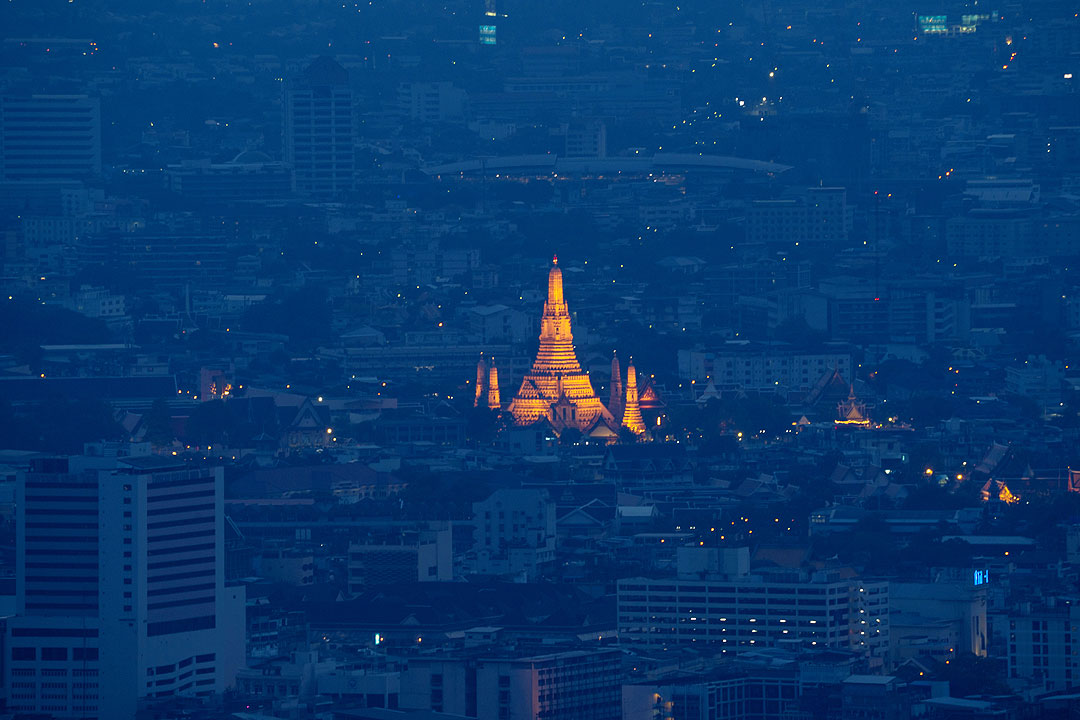Thailand’s reopening is a major test for pandemic-era tourism

THAILAND is ending quarantine for vaccinated visitors from more than 60 countries, the biggest reopening gamble in Asia and one that could mark a turning point for the revival of mass tourism during the pandemic.
Starting Monday, fully-vaccinated travelers flying in from the US, China, Singapore, Japan, India and most of Europe will be able to freely tour Thailand’s sandy beaches, temples and tropical islands after testing negative for COVID on arrival. Inoculated visitors from countries not on the list can travel to Bangkok and 16 other regions, but they will be confined to their initial destination for the first seven days before being allowed to travel elsewhere.
It’s the biggest step Thailand has taken to welcome back a slice of the nearly 40 million visitors it hosted the year before the pandemic, and is billed as a “fight to win foreign tourists” as countries from Australia to the UK also loosen Covid curbs. A successful Thai experiment could help salvage its battered economy and serve as a model for countries wary of a virus resurgence from reopenings.
“We’re not expecting the rooms to be full overnight, but it’s a great first step,” said John Blanco, general manager at luxury hotel Capella Bangkok. “All countries are taking the same posture — that is, we need to learn to live with Covid. It’s a general theme around the world.”
Hotels in places such as the US, Mexico and Turkey have reported higher occupancy after easing travel restrictions, but the rush may not be as strong for Thailand given how low it sits on the Covid resilience ranking, especially for tourists who still have to quarantine on returning home.
While Thailand fumbled in its previous reopening attempts due to a virus flareup and tardy progress in its vaccinations, it has had some success with the so-called Phuket Sandbox experiment that allowed vaccinated visitors to travel to other parts of the country after a limited stay on the resort island. Almost 60,000 tourists have visited the country since the plan started in July.
To boost the confidence of tourists and the public, Thailand is linking the reopening to a higher vaccination rate, which “is a measured approach that has a lot of logic to it,” according to Amar Lalvani, chairman of US boutique hotel operator Standard International.
“You have examples in places like Mexico and Turkey, which have been quite wide-opened and very low on restrictions, and their business is actually booming,” Mr. Lalvani said. “Countries in Asia, Thailand included, have prioritized public health. Now that you have that under control, you’re going to feel more comfortable opening up.”
The travel industry is already preparing for the Thai reopening. International carriers have scheduled more flights to the Southeast Asian nation, while hotels and beach resorts are offering bargains and the island of Phuket is hosting a New Year’s Eve party featuring Italian opera tenor Andrea Bocelli.
Academy award winner Russell Crowe, who was in Phuket and Bangkok for a film shoot, lauded Thailand’s tourism experiments and tweeted about the country’s plan to welcome back tourists.
While Chinese tourists, who made up almost a third of the total arrivals before the pandemic, will be deterred by 21-day quarantine on return home, the reopening may still draw hundreds of thousands of visitors and stave off another year of economic contraction. Thailand’s economy shrunk 6.1% last year, the worst performance since the Asian financial crisis in 1998.
There are also fears the wider reopening could worsen the COVID outbreak, with Thailand already reporting about 8,000 new infections a day. More than 90% of the participants in a recent survey had some concerns about the Nov. 1 move.
Still, for Thailand’s pandemic-hit economy and millions of people who depend on tourism for a living, it’s never too early for the return of tourists.
“The economic sector, which is the heart and affects the people of the whole country, is important,” said Sanan Angubolkul, Chairman of the Thai Chamber of Commerce. “Opening up the country is necessary. Because that is the way to ensure the survival of the people and the country.” — Bloomberg



